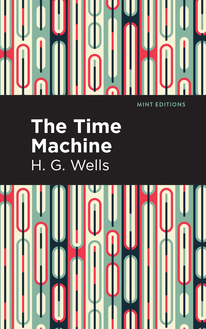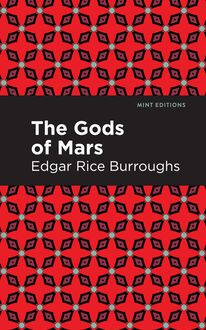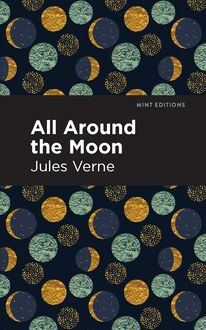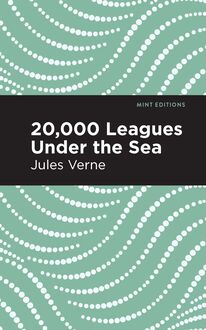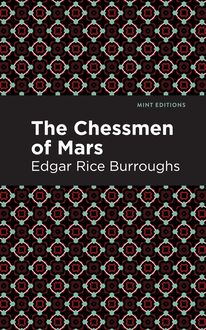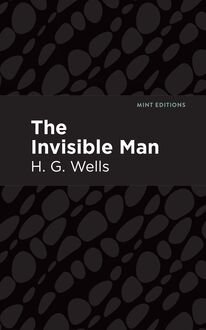-
 Univers
Univers
-
 Ebooks
Ebooks
-
 Livres audio
Livres audio
-
 Presse
Presse
-
 Podcasts
Podcasts
-
 BD
BD
-
 Documents
Documents
-
- Cours
- Révisions
- Ressources pédagogiques
- Sciences de l’éducation
- Manuels scolaires
- Langues
- Travaux de classe
- Annales de BEP
- Etudes supérieures
- Maternelle et primaire
- Fiches de lecture
- Orientation scolaire
- Méthodologie
- Corrigés de devoir
- Annales d’examens et concours
- Annales du bac
- Annales du brevet
- Rapports de stage
La lecture à portée de main
Vous pourrez modifier la taille du texte de cet ouvrage
Découvre YouScribe en t'inscrivant gratuitement
Je m'inscrisDécouvre YouScribe en t'inscrivant gratuitement
Je m'inscrisEn savoir plus
Vous pourrez modifier la taille du texte de cet ouvrage
En savoir plus

Description
The Secret Power (1921) is a science fiction novel by Marie Corelli. Published toward the end of Corelli’s career as one of the most successful writers of her generation, the novel combines romance, fantasy, and science fiction to tell a story of discovery and sacrifice set in a strangely familiar future. Thought to be inspired by the life of Marie Curie, The Secret Power showcases the immense talent of an author whose reputation has subsided in the years after her death. Due for reassessment by a modern audience, Mari Corelli’s work—which has inspired several adaptations for film and theater—is a must read for fans of early science fiction.
Set in the future, The Secret Power describes a future world united through long-distance air travel. Featuring beautiful descriptions of Southern California and Sicily, the novel follows an impoverished academic and a wealthy heiress, star-crossed lovers who wrestle with the discovery of a mysterious radioactive substance. Envisioning the prospect of unmatched power, they struggle with the ethical implications of an energy source with the capacity for good and evil. Living in his secluded cabin, the academic leaves the material untouched, fearful of its consequences. Meanwhile, his lover is content to eat small pieces of the substance daily, astounded by its rejuvenating effect. Addressing philosophical, scientific, and religious themes, The Secret Power is a moving work of fiction which uses romance to ask important questions about an emerging modern world.
With a beautifully designed cover and professionally typeset manuscript, this edition of Marie Corelli The Secret Power is a classic work of English science fiction reimagined for modern readers.
Sujets
Informations
| Publié par | Mint Editions |
| Date de parution | 20 avril 2021 |
| Nombre de lectures | 2 |
| EAN13 | 9781513285139 |
| Langue | English |
| Poids de l'ouvrage | 1 Mo |
Informations légales : prix de location à la page 0,0500€. Cette information est donnée uniquement à titre indicatif conformément à la législation en vigueur.
Extrait
The Secret Power
Marie Corelli
The Secret Power was first published in 1921.
This edition published by Mint Editions 2021.
ISBN 9781513280110 | E-ISBN 9781513285139
Published by Mint Editions ®
minteditionsbooks.com
Publishing Director: Jennifer Newens
Design & Production: Rachel Lopez Metzger
Project Manager: Micaela Clark
Typesetting: Westchester Publishing Services
C ONTENTS I II III IV V VI VII VIII IX X XI XII XIII XIV XV XVI XVII XVIII XIX XX XXI XXII XXIII XXIV XXV XXVI
I
A cloud floated slowly above the mountain peak. Vast, fleecy and white as the crested foam of a sea-wave, it sailed through the sky with a divine air of majesty, seeming almost to express a consciousness of its own grandeur. Over a spacious tract of Southern California it extended its snowy canopy, moving from the distant Pacific Ocean across the heights of the Sierra Madre, now and then catching fire at its extreme edge from the sinking sun, which burned like a red brand flung on the roof of a roughly built hut situated on the side of a sloping hollow in one of the smaller hills. The door of the hut stood open; there were a couple of benches on the burnt grass outside, one serving as a table, the other as a chair. Papers and books were neatly piled on the table,—and on the chair, if chair it might be called, a man sat reading. His appearance was not prepossessing at a first glance, though his actual features could hardly be seen, so concealed were they by a heavy growth of beard. In the way of clothing he had little to trouble him. Loose woollen trousers, a white shirt, and a leathern belt to keep the two garments in place, formed his complete outfit, finished off by wide canvas shoes. A thatch of dark hair, thick and ill combed, apparently served all his need of head covering, and he seemed unconscious of, or else indifferent to, the hot glare of the summer sky which was hardly tempered by the long shadow of the floating cloud. At some moments he was absorbed in reading,—at others in writing. Close within his reach was a small note-book in which from time to time he jotted down certain numerals and made rapid calculations, frowning impatiently as though the very act of writing was too slow for the speed of his thought. There was a wonderful silence everywhere,—a silence such as can hardly be comprehended by anyone who has never visited wide-spreading country, over-canopied by large stretches of open sky, and barricaded from the further world by mountain ranges which are like huge walls built by a race of Titans. The dwellers in such regions are few—there is no traffic save the coming and going of occasional pack-mules across the hill tracks—no sign of modern civilisation. Among such deep and solemn solitudes the sight of a living human being is strange and incongruous, yet the man seated outside his hut had an air of ease and satisfied proprietorship not always found with wealthy owners of mansions and park-lands. He was so thoroughly engrossed in his books and papers that he hardly saw, and certainly did not hear, the approach of a woman who came climbing wearily up the edge of the sloping hill against which his cabin presented itself to the view as a sort of fitment, and advanced towards him carrying a tin pail full of milk. This she set down within a yard or so of him, and then, straightening her back, she rested her hands on her hips and drew a long breath. For a minute or two he took no notice of her. She waited. She was a big handsome creature, sun-browned and black-haired, with flashing dark eyes lit by a spark that was not originally caught from heaven. Presently, becoming conscious of her presence, he threw his book aside and looked up.
“Well! So you’ve come after all! Yesterday you said you wouldn’t.”
She shrugged her shoulders.
“I do not wish you to starve.”
“Very kind of you! But nothing can starve me.”
“If you had no food—”
“I should find some”—he said—“Yes!—I should find some,—somewhere! I want very little.”
He rose, stretching his arms lazily above his head,—then, stooping, he lifted the pail of milk and carried it into his cabin. Disappearing for a moment, he returned, bringing back the pail empty.
“I have enough for two days now,” he said—“and longer. What you brought me at the beginning of the week has turned beautifully sour,—a ‘lovely curd’ as our cook at home used to say—, and with that ‘lovely curd’ and plenty of fruit I’m living in luxury.” Here he felt in his pockets and took out a handful of coins. “That’s right, isn’t it?”
She counted them over as he gave them to her—bit one with her strong white teeth and nodded.
“You don’t pay M E ”—she said, emphatically—“It’s the Plaza you pay.”
“How many times will you remind me of that!” he replied, with a laugh—“Of course I know I don’t pay Y OU ! Of course I know I pay the Plaza!—that amazing hotel and ‘sanatorium’ with a tropical garden and no comfort—”
“It is more comfortable than this”—she said, with a disparaging glance at his log dwelling.
“How do Y OU know?” and he laughed again—“What have Y OU ever experienced in the line of hotels? You are employed at the Plaza to fetch and carry;—to wait on the wretched invalids who come to California for a ‘cure’ of diseases incurable—”
“Y OU are not an invalid!” she said with a slight accent of contempt.
“No! I only pretend to be!”
“Why do you pretend?”
“Oh, Manella! What a question! Why do we all pretend?—all!—every human being from the child to the dotard! Simply because we dare not face the truth! For example, consider the sun! It is a furnace with flames five thousand miles high, but we ‘pretend’ it is our beautiful orb of day! We must pretend! If we didn’t we should go mad!”
Manella knitted her black brows perplexedly.
“I do not understand you”—she said—“Why do you talk nonsense about the sun? I suppose you A RE ill after all,—you have an illness of the head.”
He nodded with mock solemnity.
“That’s it! You’re a wise woman, Manella! That’s why I’m here. Not tubercles on the lungs,—tubercles on the brain! Oh, those tubercles! They could never stand the Plaza!—the gaiety, the brilliancy—the—the all-too dazzling social round! …” he paused, and a gleam of even white teeth under his dark moustache gave the suggestion of a smile—“That’s why I stay up here.”
“You make fun of the Plaza”—said Manella, biting her lips vexedly—“And of me, too. I am nothing to you!”
“Absolutely nothing, dear! But why should you be any thing?”
A warm flush turned her sunburnt skin to a deeper tinge.
“Men are often fond of women”—she said.
“Often? Oh, more than often! Too often! But what does that matter?”
She twisted the ends of her rose-coloured neckerchief nervously with one hand.
“You are a man”—she replied, curtly—“You should have a woman.”
He laughed—a deep, mellow, hearty laugh of pleasure.
“Should I? You really think so? Wonderful Manella? Come here!—come quite close to me!”
She obeyed, moving with the soft tread of a forest animal, and, face to face with him, looked up. He smiled kindly into her dark fierce eyes, and noted with artistic approval the unspoiled beauty of natural lines in her form, and the proud poise of her handsome head on her full throat and splendid shoulders.
“You are very good-looking, Manella”—he then remarked, lazily—“Quite the model for a Juno. Be satisfied with yourself. You should have scores of lovers!”
She stamped her foot suddenly and impatiently.
“I have none!” she said—“And you know it! But you do not care!”
He shook a reproachful forefinger at her.
“Manella, Manella, you are naughty! Temper, temper! Of course I do not care! Be reasonable! Why should I?”
She pressed both hands tightly against her bosom, seeking to control her quick, excited breathing.
“Why should you? I do not know! But I care! I would be your woman! I would be your slave! I would wait upon you and serve you faithfully! I would obey your every wish. I am a good servant,—I can cook and sew and wash and sweep—I can do everything in a house and you should have no trouble. You should write and read all day,—I would not speak a word to disturb you. I would guard you like a dog that loves his master!”
He listened, with a strange look in his eyes,—a look of wonder and something of compassion. There was a pause. The silence of the hills was, or seemed more intense and impressive—the great white cloud still spread itself in large leisure along the miles of slowly darkening sky. Presently he spoke. “And what wages, Manella? What wages should I have to pay for such a servant?—such a dog?”
Her head drooped, she avoided his steady, searching gaze.
“What wages, Manella? None, you would say, except—love! You tell me you would be my woman,—and I know you mean it. You would be my slave—you mean that, too. But you would want me to love you! Manella, there is no such thing as love!—not in this world! There is animal attraction,—the magnetism of the male for the female, the female for the male,—the magnetism that pulls the opposite sexes together in order to keep this planet supplied with an ever new crop of fools,—but love! No, Manella! There is no such thing!”
Here he gently took her two hands away from their tightly folded position on her bosom and held them in his own.
“No such thing, my dear!” he went on, speaking softly and soothingly, as though to a child—“Except in the dreams of poets, and you—fortunately!—know nothing about poetry! The wild animal in you is attracted to the tame, ruminating animal in me,—and you would be my woman, though I would not be your man. I quite believe that it is the natural instinct of the female to select her mate,—but, though the rule may hold good in the forest world, it doesn’t always work among the human herd. Man considers that he has the right of selection— quite a mistake of his I’m sure, for he has no real sense of beauty or fitness, and generally selects most vilely. All the same he is an obstinate brute, and sticks to his brutish ideas
-
 Univers
Univers
-
 Ebooks
Ebooks
-
 Livres audio
Livres audio
-
 Presse
Presse
-
 Podcasts
Podcasts
-
 BD
BD
-
 Documents
Documents
-
Jeunesse
-
Littérature
-
Ressources professionnelles
-
Santé et bien-être
-
Savoirs
-
Education
-
Loisirs et hobbies
-
Art, musique et cinéma
-
Actualité et débat de société
-
Jeunesse
-
Littérature
-
Ressources professionnelles
-
Santé et bien-être
-
Savoirs
-
Education
-
Loisirs et hobbies
-
Art, musique et cinéma
-
Actualité et débat de société
-
Actualités
-
Lifestyle
-
Presse jeunesse
-
Presse professionnelle
-
Pratique
-
Presse sportive
-
Presse internationale
-
Culture & Médias
-
Action et Aventures
-
Science-fiction et Fantasy
-
Société
-
Jeunesse
-
Littérature
-
Ressources professionnelles
-
Santé et bien-être
-
Savoirs
-
Education
-
Loisirs et hobbies
-
Art, musique et cinéma
-
Actualité et débat de société
- Cours
- Révisions
- Ressources pédagogiques
- Sciences de l’éducation
- Manuels scolaires
- Langues
- Travaux de classe
- Annales de BEP
- Etudes supérieures
- Maternelle et primaire
- Fiches de lecture
- Orientation scolaire
- Méthodologie
- Corrigés de devoir
- Annales d’examens et concours
- Annales du bac
- Annales du brevet
- Rapports de stage
